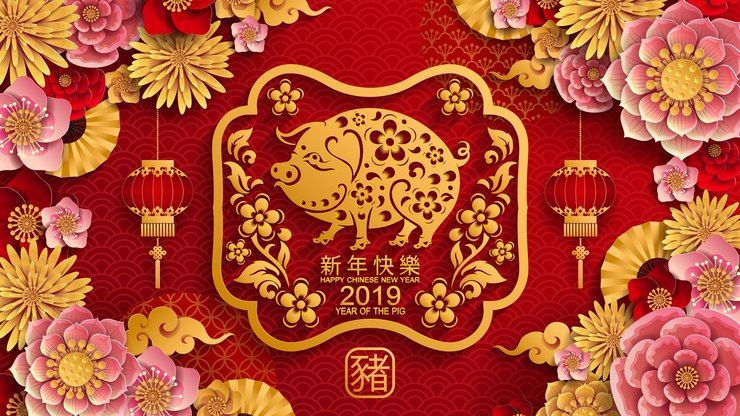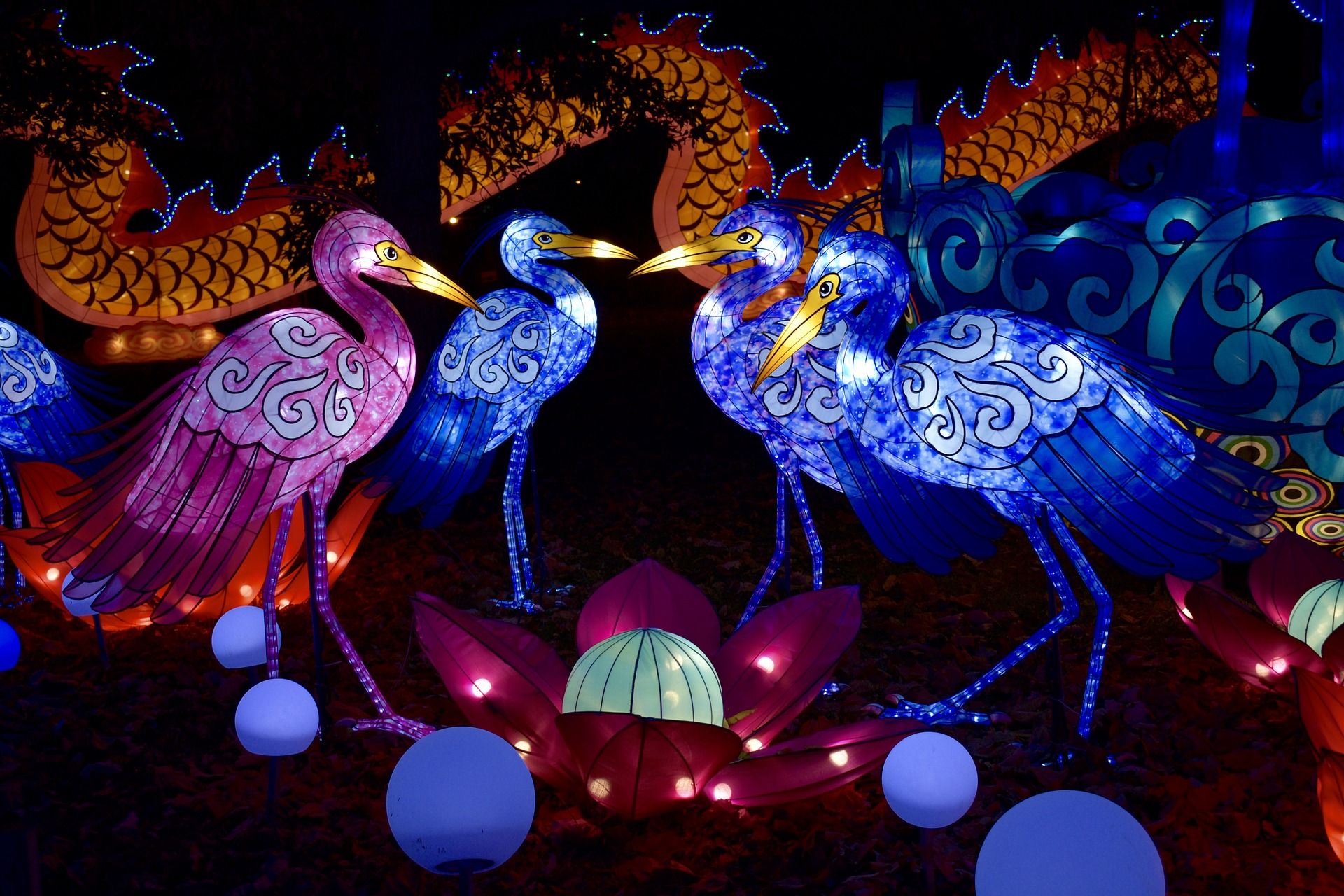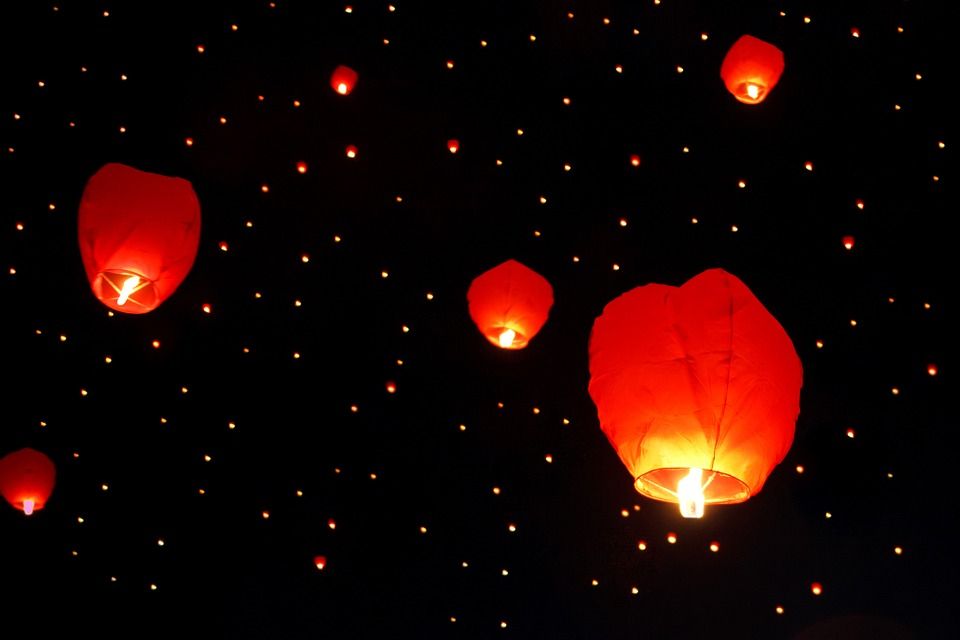Alugha Updates | March 2022 - what's new at alugha
Here at alugha, we love technology and leveraging it in creative ways for our users to provide unique features and a stellar experience.
The famous Chinese poet Wang Wei once wrote: "Whoever lives alone in a foreign country gets twice as homesick on holidays." For the Chinese, the Chinese New Year is such a holiday and evokes a longing for home.

Read this article in: Deutsch, English, Español, Português, हिन्दी, 中文
Estimated reading time:7minutesShortly after the foundation of the People's Republic of China in 1949, the Chinese government decided to introduce the Gregorian calendar into the country and use it as the official calendar of the state. However, the traditional Chinese calendar, today mostly called "farmer's calendar", is not renounced. To this day, many national public holidays in China are determined according to the farmers' calendar. For example the Qingming Festival, the Dragon Boat Festival, the Lantern Festival and the focus of this article: the Chinese New Year Festival, also known as "Spring Festival".
The Spring Festival has been celebrated in China for more than 4000 years. Similar to Christmas in Germany, the Spring Festival is the most important traditional festival in China. It plays an important role in the traditional Chinese culture and is deeply rooted in the heart of the Chinese. As soon as the Spring Festival is near, you return home, whether you're in the south or north of the country, to celebrate the New Year with your family. This is how the term "Chunyun" was coined, which describes the sharp increase in traffic during the holidays. In China's long history, the Spring Festival has received a profound connotation from the people. On this occasion, many folk sayings and words of happiness have been created, which correspond the local conditions and customs and reflect the life experiences and the beautiful visions of the people. On the occasion of the beginning of the Spring Festival I would like to explain some interesting customs, share the fun of the Spring Festival with you and hopefully ease homesickness.
The Chinese New Year is calculated according to the Chinese farmer's calendar and isn't therefore, like in the Gregorian calendar, the same every year. 2019 it is on February, 5th. The festival begins according to the Chinese calendar on January, 1st (05.02.2019) and lasts about 15 days until the Lantern Festival on January, 15th (19.02.2019). According to popular tradition, however, the Spring Festival begins on December, 23rd (according to the farmers' calendar) and reaches its peak on New Year's Eve and the first day of the new year.
In Chinese folk culture, the Spring Festival is also known as "Guo Nian" (the end of the year). There are many legends about the New Year in China. One of them says there's a vicious monster called "Nian". It awakes from its deep sleep at the end of a year and eats animals and humans everywhere. However, the monster is very afraid of the color red and of noise. That's why Chinese decorate their houses red and make as much noise as possible to protect themselves from the monster. To celebrate the expulsion of the monster, the Chinese still decorate their houses in red and make as much noise as possible by lighting firecrackers. Over time, red decorations, clothing and fireworks have become a must for the New Year. The following popular saying illustrates how Chinese like to light fireworks and crackers for the Spring Festival and how much importance they give to this activity:
"The New Year has come, make some noise: the first noise brings you luck; the second dispels worries; the third dispels your difficulties; the fourth brings wealth; the fifth promises a high salary; the sixth brings health; the seventh brings a good mood; the eighth stands for peace; the ninth is a blessing of God; the tenth is the guarantee of a good career!"
In addition to the many stories and legends, there are two important reasons why the Chinese celebrate the New Year: First, they want to meet with the family, second, they see the festival as a good time to say goodbye to the past year and to plan the new year.

People in different regions of China celebrate the Spring Festival in different ways. In my homeland there is a folk song that vividly describes the customs of the people of East Henan during the Spring Festival. I summarize the meaning here:

The highlight of the Spring Festival
From the 2nd to the 15th of January you visit relatives and friends. And with the Lantern Festival on January, 15, you set a nice final point for the New Year's celebration. As I write this article, I remember how I used to spend the spring festival with my family: Decorating the house with my father, making dumplings with my mother and playing and arguing with my siblings ... Now Papa is already in heaven and we can't meet on earth anymore. But the memories of the past turn of the year do not fade, and the mutual love, as well as the support within the family never stops.
Thank you for reading this and until next time!
Jingmin Yan and the alugha team!
#alugha
#doitmultilingual
#everyone‘slanguage
| Code | Name | Views | Percentage |
|---|---|---|---|
| zho | 中文 | 185 | 35.44% |
| hin | हिन्दी | 127 | 24.33% |
| deu | Deutsch | 85 | 16.28% |
| eng | English | 54 | 10.34% |
| por | Português | 46 | 8.81% |
| spa | Español | 25 | 4.79% |
| Total | 522 | 100% | |
Here at alugha, we love technology and leveraging it in creative ways for our users to provide unique features and a stellar experience.
Here at alugha, we love technology and leveraging it in creative ways for our users to provide unique features and a stellar experience.
“Management is the art of orchestrating best possible collaboration in an organization.” Where this “art” (for me) combines both, the willingness and the ability to act. Both have to be reflected in the two main areas of management: in the function “management” (the “how” and “what”) and the instit
Alugha is a video translation tool that streamlines the production and collaboration process for high-quality content tailored to international audiences. Learn more at: https://appsumo.8odi.net/get-the-starter-pack You’re ready to share your videos with the whole wide world. But like a certain co
IZO™ Cloud Command provides the single-pane-of-glass for all the underlying IT resources (On-premise systems, Private Cloud, Cloud Storage, Disaster Recovery, Amazon Web Services, Microsoft Azure, Google Cloud Platform, etc). About Tata Communications: Welcome to Tata Communications, a digital ecos
A revolutionary new service in the video industry! Our report is about the unique alugha platform. Alugha gives you the tools to make your videos multilingual and provide them in the language of your viewers. Learn more about the great features of the platform here: https://alugha.com/?mtm_campaign